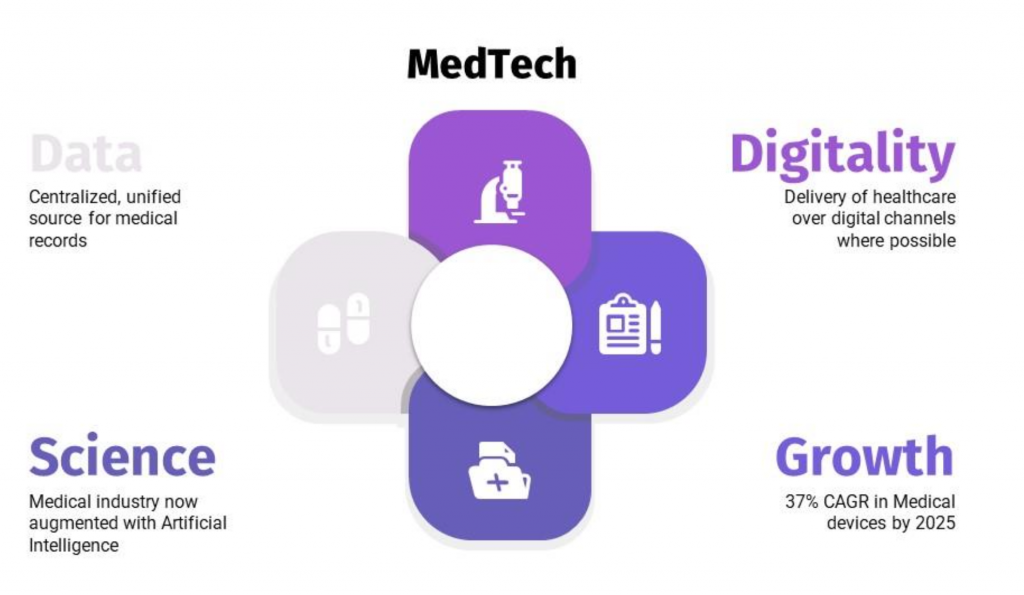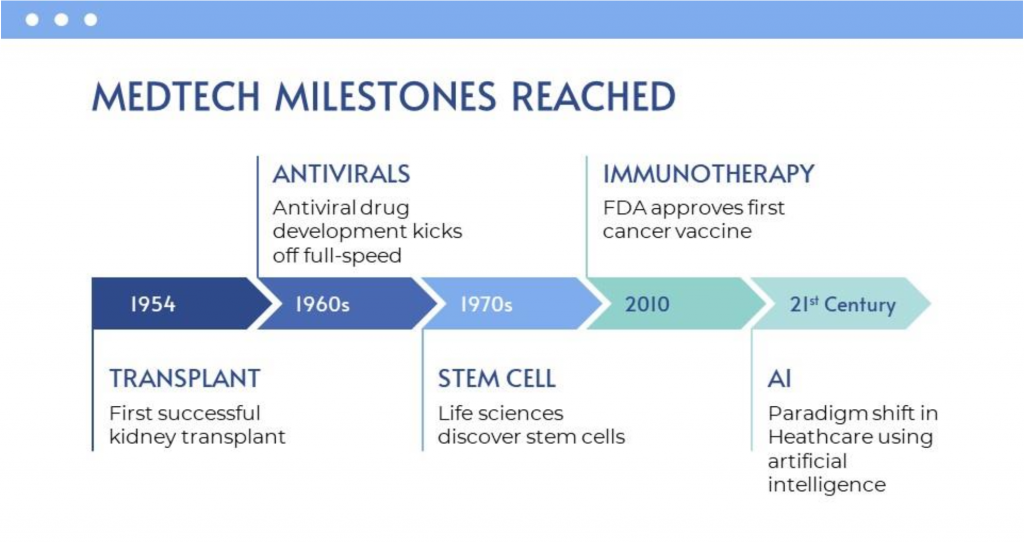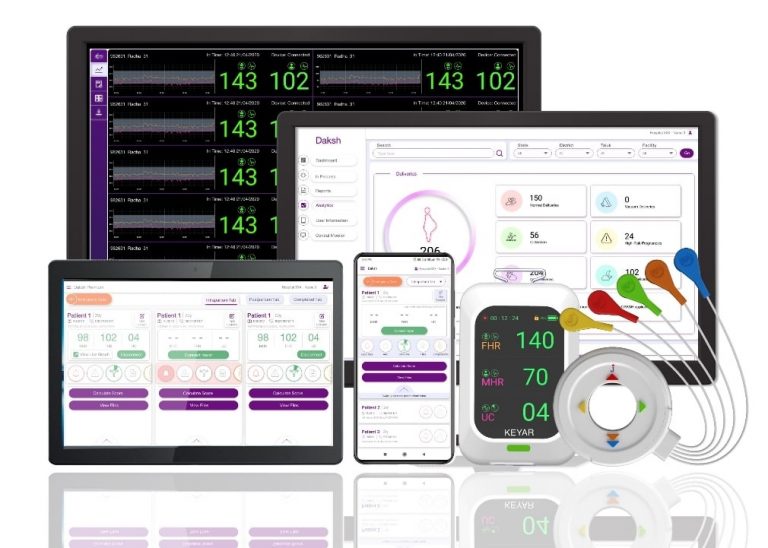Upcoming Trends in The Healthcare Industry
Introduction
India is counted amidst the top 20 markets globally for medical devices, according to IBEF. The market size is predicted to reach a value of $50 billion by 2025, increasing at a CAGR of 27%.
With the advent of new technologies and innovations, healthcare undergoes transformations every year. In the context of the recent pandemic, the healthcare industry has experienced accelerated adoption of technological and digital solutions like telehealth, remote insurance, virtual clinics, and so much more.

2021 has primarily been about assimilating these new healthcare solutions into the mainstream as healthcare establishments strive to provide personalized care to their outpatients and residents. The pandemic has made innovation a necessity and forced the trends to evolve into providing better medical and health services for the citizens. Let’s look at a few key trends for the upcoming year in the healthcare industry.
What 2022 Holds for HealthTech
Building on the current trends, the future of healthcare goes hand in hand with new and disruptive technology. Historically, there have been quite a few milestones achieved in the medical and healthcare industry as a whole, like immunotherapy, the development of vaccines, and much more. Today’s trends majorly focus on accessibility, technology, and delivery of services. Let’s look at them now.

Digital Transformation Drives Healthcare
According to a report by Deloitte, the upcoming year will see increased adoption of digital technologies in the spheres of healthcare and medicine. The augmentation of Digi-health with cognitive technologies like artificial intelligence and machine learning will help create a disruptive ripple across the world. Many in-house services (like appointments with a doctor) are now delivered over digital channels (virtual clinics).
This trend is expected to perpetuate. With Prime Minister Modi’s National Digital Health Mission announced in 2020 in India, it is expected that the healthcare record management of the citizens will become more centralized and organized as opposed to siloed and disconnected as it was until recently.
In fact, according to the same report, in-vitro diagnostics (or tests done on human blood or tissue) has been one of the fastest-growing MedTech sectors in 2020, with a $63.7 billion market size at the end of that year.
Medical Sciences Paradigm Shift
Pharmaceuticals, R&D, and life sciences are expected to see a process overhaul. While many companies have begun to standardize their processes and set them into stone, 2022 will be more about automating as much of the workload as possible and delegating management to systems equipped with artificial intelligence and machine learning capabilities.
For example, pharmaceutical companies can expect personalized medication instead of batch-manufactured medication – much like shopping on e-commerce. Technologies like RFID and Case Report Forms for clinical trials are already in use; “The pharmaceutical industry is in rapid transition from a supply-driven market to a demand- and service-driven market, where manufacturing efficiency and responsiveness will play a critical role in future success,” said Mr. Ashish Ghosh of ARC Advisory Group, Inc.
Additionally, smart technologies have already been in use for performing medicine-related activities:
32% of people employ technology for the improvement of personal health (like using wearables)
17% of the respondents employ technology for medicine dosage reminders
15% share medical data (mostly medication) through technology
According to IBEF, Indian states like Maharashtra, Andhra Pradesh, and Gujarat are in the process of setting up MedTech parks that would aid the manufacturing of cost-optimized and technologically advanced medical devices.
Increased Significance of Data
Personalization has been one of the significant factors driving consumer service ever since the pandemic began. Digitalization has helped create more touchpoints for consumers to get in touch with healthcare professionals, creating more sources to collect data from.
The new year will see a rise in the digital IQ of healthcare workers in analytics and skills in operating MedTech devices. The Deloitte report also predicts that data will soon be monetized for the greater good and that consumers will be more willing to share their medical records with healthcare establishments. Deploying intelligent data management solutions will become the cornerstone of a seamless, smooth healthcare experience for both outpatients and residents.
Big data analytics are specifically beneficial for the R&D sector in the context of predictive modeling, statistical tools and reporting, analysis of clinical trials, and much more.
Conclusion
Rapid innovations in medicine and healthtech have resulted in a slew of solutions and novel techniques that address core problems plaguing the world. A prime example is the record-breaking development of COVID-19 vaccinations by various pharmaceuticals around the globe. These trends in the healthcare industry can be expected to accelerate in the coming years.
Subscribe to Newsletter
Recent Posts
- Bridging The Gaps Between Treatment and Diagnosis: The FastSense Approach
- Embedded Finance in Healthcare Industry in India: Collaboration with FinTech and MedTech Companies
- Thermaissance: Where Healthcare and Quality of Life Meet
- Case Study: TeraLumen
- Emerging new business models in the MedTech industry in India







